If you buy via a link on this page, we may receive a commission, at no extra cost to you.Learn more
There are many things that have an impact on fishing. Water temperature is one of these things, and surprisingly as it might sound, it is one of the most important.
In this article, we will cover why temperature affects fishes and how it affects fishing as a whole.
Let’s get started.
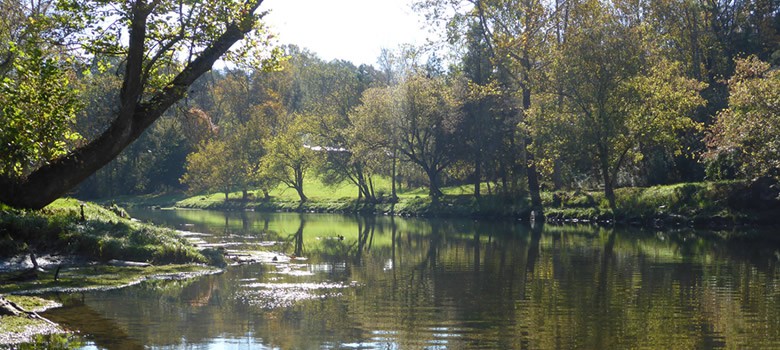
So, does Water Temperature Affect Fishing? Yes, the water temperature has a tremendous impact on fish activity. Thus, it will impact, in a good or bad way, your fishing. Here you have the best temperatures to fish some species.
For freshwater:
- Crappie: 65 to 75 ºF
- Walleye: 53 to 72 ºF
- Largemouth Bass: 60 to 77ºF
- Smallmouth Bass: 58 to 71ºF
- Northern Pike: 55 to 75ºF
- Rainbow Trout: 50 to 65ºF
- Lake Trout: 42 to 55ºF
- Brown Trout: 52 to 73ºF
- Muskellunge: 55 to 73ºF
- Salmon: 44 to 60ºF
For saltwater:
- Surfperch: 51 to 76ºF
- Striped Bass: 55 to 65ºF
- Bluefish: 66 to 73ºF
- Red Snapper: 55 to 65ºF
- Tarpon: 75 to 90ºF
- Weakfish: 55 to 60ºF
- Albacore Tuna: 50 to 64ºF
- Mackerel: 45 to 48ºF
An average, temperatures between 53 to 70ºF will produce more bites in freshwater, whereas temperatures around 65 to 77ºF are the best temperatures for saltwater angling. Hence, make sure to check the temperature before casting.
But instead of remembering which is the best temperature for a certain fish, you should learn how and why water temperature changes fish behavior. So, if you aren’t getting any bite, you can change your tactics accordingly.
Does Water Temperature Affect Fishing?
Yes, the water temperature can increase or decrease fish activity; thereby, affecting your fishing.
The first thing that you should know is that most fishes are cold-blooded creatures, which means that they can’t control their body temperature as humans do. As a consequence, their body temperature is somewhat the same as the water they are swimming in. Additionally, you must take into account that fish metabolism changes depending on their body temperature. Thus, if the temperature is too low, fish will become less active.
So, why do fish become less active in cold water? This has to do with the fact that their metabolism slows as temperature decreases. Hence, they assimilate food slower. And, if they aren’t hungry, it is less likely that they will bite. It is only logical.
On the other hand, if the water gets hotter, the fish’s metabolism accelerates. Thus, they will digest food faster, which in turn increases fish activity. And your chances of getting more bites.
But there is a catch here. The water can’t be too hot, or the fish will choke to death. Yes, you read that right; choke.
Fish need oxygen to be able to breathe. And while water has one molecule of oxygen, they are unable to break down water molecules. Thus, they take dissolved oxygen instead. The thing here is that oxygen concentration decreases as water temperature increases, which means that the hotter the water gets, the less oxygen it has dissolved. As a consequence, it is quite unlike, if not impossible, to find fish swimming in hot waters.
The Optimum Water Temperature for Fishing
Now that you know that water affects fish in two different ways, it will be easier to understand that the optimum temperature for fishing is a balance between having enough oxygen to breathe and water hot enough for fish to be actively feeding. Knowing this information will increase your chances of success.
Does this mean that you can’t fish in extremely cold waters? While fish are less active in such conditions, it is not impossible to land them. If it was, people won’t take the time to drill a hole in the ice to fish. All that you have to do is to make the lure or bait irresistible to the fish. Of course, this takes a lot of practice. But as we said before, it is not impossible to fish in ice-cold waters.
As a fact, it is easier to catch a fish in colder waters rather than hot waters. The reason is that fish can’t simply live in such conditions. The oxygen levels are too low for them to be able to breathe. Thus, they either die or swim to colder waters.
What Can I do If the Water Is too Hot?
When the water temperature is not within the optimum range, you must switch your strategy. The obvious thing to do is to fish deeper. The water temperature is not the same throughout the entire column. It is hotter on the surface and gets colder as you move down to the bottom. Thus, releasing a couple of yards of the fishing line could do the trick. This is especially useful if the fish you are targeting love to swim in cold water. But it will also work with all fishes, regardless of their temperature preferences.
It also pays to fish near trees or where the sun doesn’t hit the water. The last thing that you can do is throw some ice into the water, just kidding. Actually, what you can do is fish at night or early in the day, when the water is colder.
The best strategy while fishing on warm water is to use a fast-moving lure. As fish are more active, they are more likely to pay attention to something that is moving fast and target it by pure instinct.
Fishing While the Water is Cold
Things are different when the water gets cold. Usually, fish that fancy hotter waters will stay closer to the shallows where it is warmer. In this case, keep off deep water and target the weeds and shorelines.
In contrast, fishes that prefer cold water, such as trout, will remain active regardless of the depth.
While fishing on cold waters, try to use slow movement. This will give enough time for the fish to see the lure or bait, and decide whether or not to take a bite.
How Can I Check the Water Temperature?
For instance, you can use a thermometer to check the water temperature. Yet, you should keep in mind that you will measure the surface temperature, not the water of the whole water. So, consider that it will be colder the deeper you get into the water.
Another option is to use a fish finder. Most of these devices will show you the approximate water temperature. Alternatively, you can estimate the water temperature with that of the air. Keep in mind that water is naturally colder than the air.
Always Check the Weather
Checking the weather before a fishing trip is among the smartest things you could do. First, you will be able to dress properly. For example, if it will be a sunny day, you should go with breathable clothes. Another reason is that you would be able to anticipate the fish’s movement. Using the same example as before, you should target the deeper sections of the water during sunny days.
Lastly, you will know how likely it is to rain, or if there will be clouds in the sky. Rainy or cloudy days decrease water temperature. Thus, make sure to target the shallows.
How Does Water Temperature Affect Fish Activity?
Fish live inside the water. So, it is only logical that changes in the water temperature will produce changes in fish behavior. As a general rule of thumb, cold water slows fish metabolism; thereby, lowering fish activity. Thus, they are less likely to bite your lure or hook.
Similarly, warmer waters will increase bites as it speeds up fish metabolism. However, heat also lowers the amount of dissolved oxygen present in the water. And, as fish need to breathe to live, they will move to deeper and colder waters with more oxygen. So, there is no exact answer to the question of what is the best temperature for fishing.
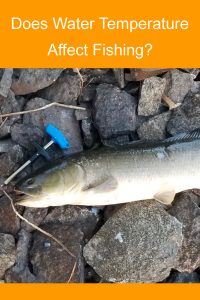
The best we can do is to provide you with optimum ranges to fish. For instance, the best temperatures for freshwater fishing are between 53 to 70ºF. Similarly, between 65 to 77ºF is the optimum range for saltwater fishing. Keep in mind that these are average values that we calculated using optimum temperatures for a wide variety of fishes.
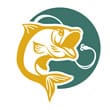
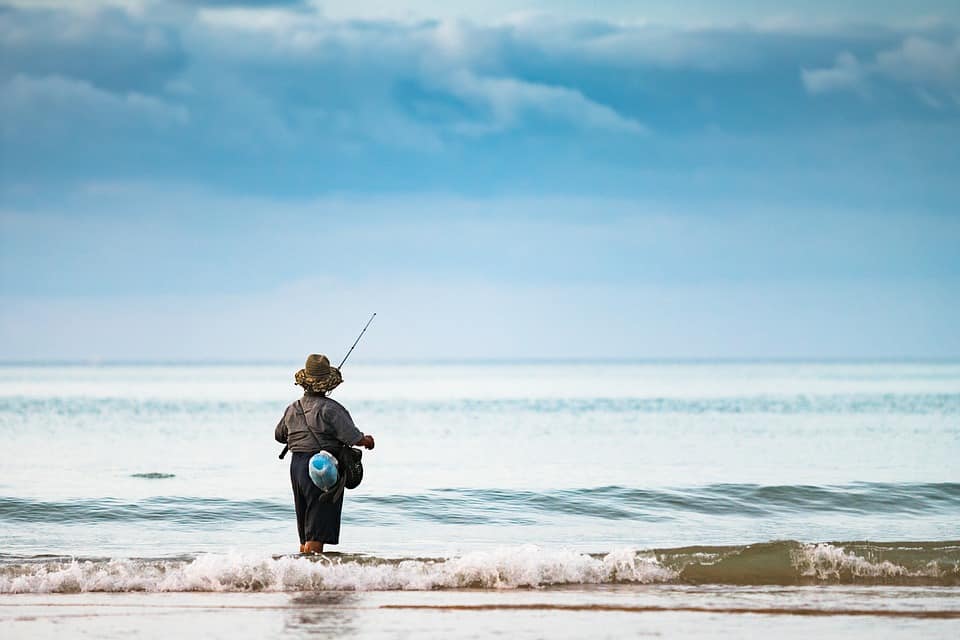
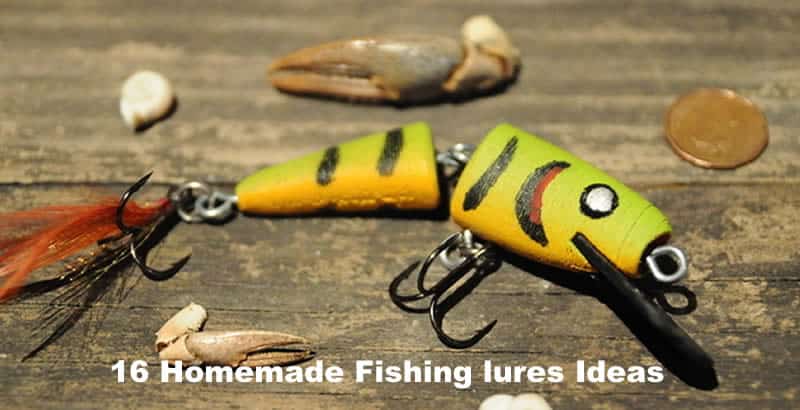

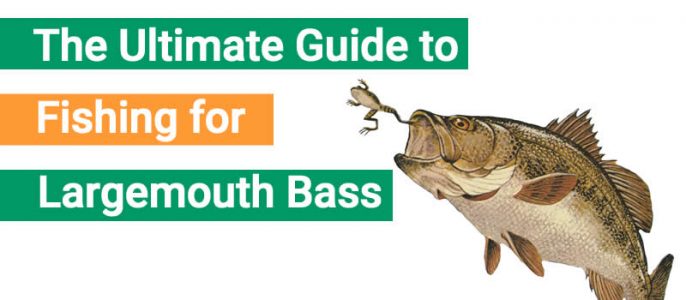
This was very knowledgeable, thanks for the advise.👍